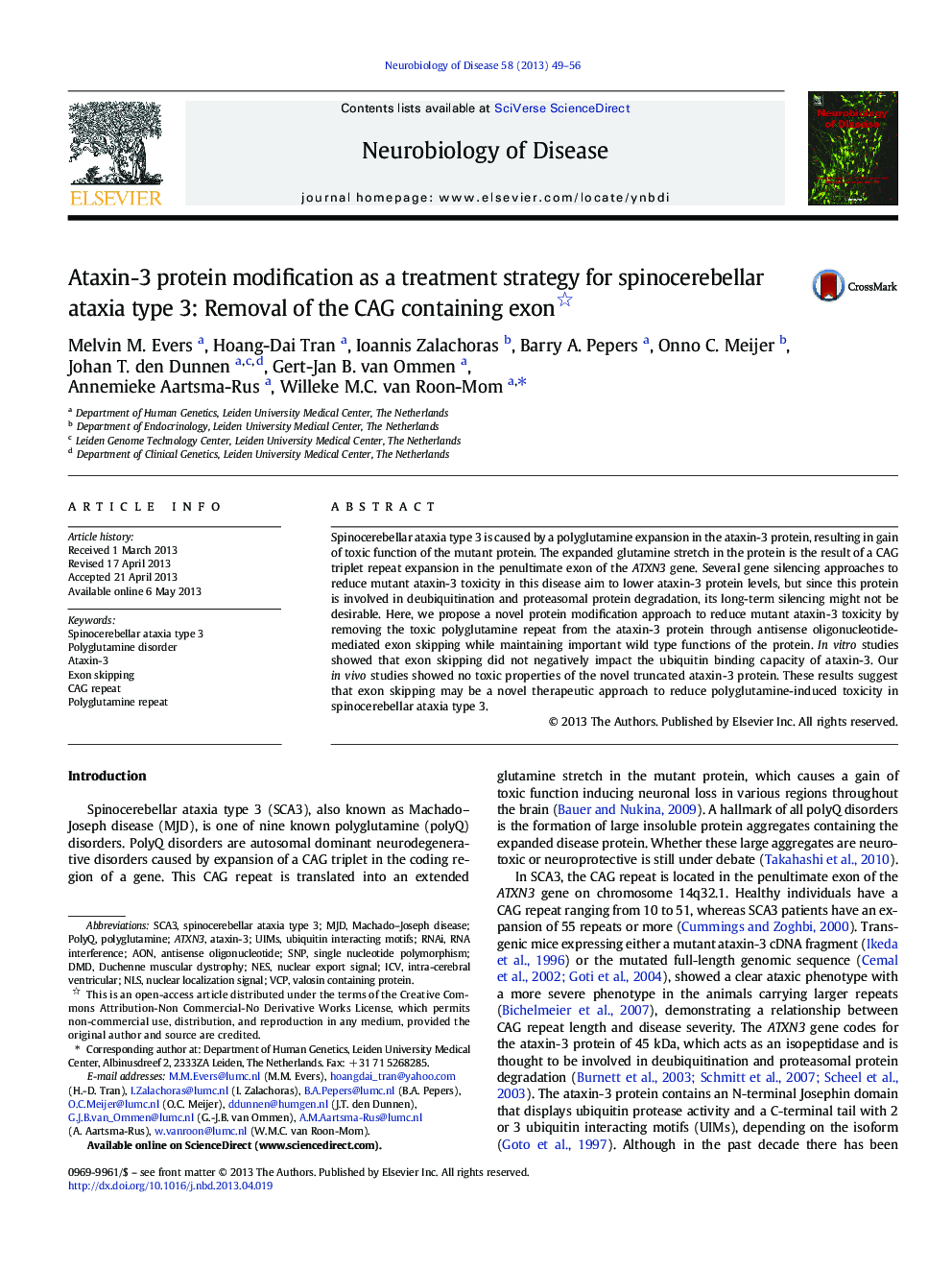| Article ID | Journal | Published Year | Pages | File Type |
|---|---|---|---|---|
| 6022211 | Neurobiology of Disease | 2013 | 8 Pages |
Abstract
Spinocerebellar ataxia type 3 is caused by a polyglutamine expansion in the ataxin-3 protein, resulting in gain of toxic function of the mutant protein. The expanded glutamine stretch in the protein is the result of a CAG triplet repeat expansion in the penultimate exon of the ATXN3 gene. Several gene silencing approaches to reduce mutant ataxin-3 toxicity in this disease aim to lower ataxin-3 protein levels, but since this protein is involved in deubiquitination and proteasomal protein degradation, its long-term silencing might not be desirable. Here, we propose a novel protein modification approach to reduce mutant ataxin-3 toxicity by removing the toxic polyglutamine repeat from the ataxin-3 protein through antisense oligonucleotide-mediated exon skipping while maintaining important wild type functions of the protein. In vitro studies showed that exon skipping did not negatively impact the ubiquitin binding capacity of ataxin-3. Our in vivo studies showed no toxic properties of the novel truncated ataxin-3 protein. These results suggest that exon skipping may be a novel therapeutic approach to reduce polyglutamine-induced toxicity in spinocerebellar ataxia type 3.
Keywords
DMDSCA3ATXN3MJDAtaxin-3VCPNLSPolyQICVPolyglutamine repeatnESUIMsantisense oligonucleotideRNA interferenceRNAiMachado–Joseph diseaseCAG repeatDuchenne muscular dystrophynuclear export signalnuclear localization signalSpinocerebellar Ataxia Type 3Valosin containing proteinexon skippingPolyglutamineSingle nucleotide polymorphismSNPAON
Related Topics
Life Sciences
Neuroscience
Neurology
Authors
Melvin M. Evers, Hoang-Dai Tran, Ioannis Zalachoras, Barry A. Pepers, Onno C. Meijer, Johan T. den Dunnen, Gert-Jan B. van Ommen, Annemieke Aartsma-Rus, Willeke M.C. van Roon-Mom,
